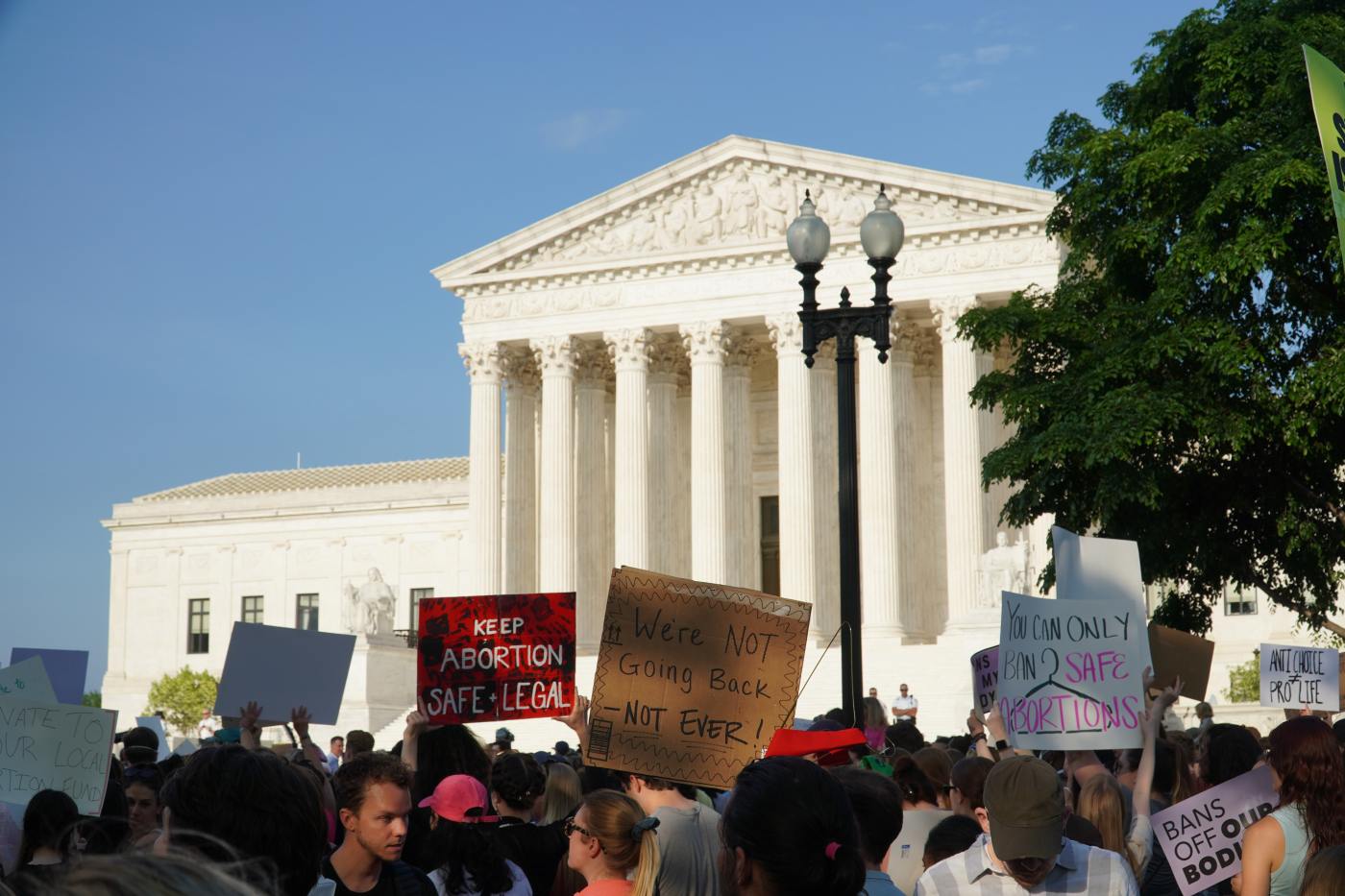One of the great American myths was exposed once again this last week: the myth that we can separate religion from politics. It is often said that religion has no business influencing public policy. Why should one person’s religion dictate the life of another? Thus we separate church and state, ensuring that each individual has the right to decide on religious and moral questions for themselves. But as Roe v. Wade was overturned last week, many claim we are now on the verge of a theocracy. The Supreme Court Justices have forced their religious beliefs on the American people in regards to abortion. What will be the next domino to fall?
Yet this narrative is rooted in the myth that it is possible to have politics and public policy apart from religion. Politics is an inherently religious project. The question of politics is ultimately: how are we going to live together? This is a religious question. It is wrapped up in the big questions of life: Who are we as people? Where do we come from, where are we going? What is the point and purpose of life? What does it look like for people to flourish?
How we think about these questions is always going to involve our religion (or so-called lack of religion). The notion that we can separate religious beliefs from politics assumes that religion is only a private, personal affair akin to a hobby. If religion is nothing more than a private set of beliefs and practices, then it might make sense that we can try to leave that to individual discretion and then turn to politics for the real business of deciding how to run the world. Yet we cannot go about the business of running the world without a particular set of beliefs, paradigms, and stories. Public policy always involves the beliefs and convictions of the people involved. The conviction that religion should be separated from politics is not a given but is itself a belief that arises from a particular worldview.
To argue that one must set aside their religion when making public policy decisions is simply naive. It assumes that one can make decisions about how the world is run without appealing to their worldview. To argue that public policy can only be informed by worldviews that are deemed “non-religious” is arbitrary.
Part of what makes abortion so divisive is it is impossible to have abortion policies that do not force one’s religious beliefs onto another. In many areas of life, the American mentality is: live and let live. There are many circumstances in which various religious beliefs can co-exist. There is no law that says you have to attend particular religious services, for example. Most of us consider this a good thing. Abortion, however, does not give us this “live and let live” option. Whatever policy is put in place is going to reflect certain beliefs on personhood.
Abortion involves the question: what makes a person a person? There is no possibility of answering that question without philosophical or theological convictions. When we decide as a matter of public policy who has the rights of a human person and who does not (and whose rights take precedence) we must necessarily deal with the philosophical questions of personhood. This is not a sphere in which “live and let live” is viable. For obvious reasons, we do not leave the question of personhood up to the individual. I do not get to decide for myself who is a person and who is not.
If abortion in a particular state is legal up until 15 weeks, for example – the policy in place is informed by a worldview that says: the fetus does not have equal human rights to the mother until 15 weeks. Likewise, for abortion to be completely illegal under any circumstance is also informed by a worldview that says: the fetus has equal (if not greater) human rights to the mother from the moment of conception onwards.
My purpose here is not to argue for a particular abortion policy. Contrary to the popular narrative, this is not a two sided issue. The options are not between abortion without restriction and no abortions whatsoever. However, we simply must accept that whatever abortion policy is put in place is going to reflect a particular set of beliefs and a particular understanding of the world.
Last week’s Supreme Court decision was certainly informed by the religious beliefs of the Supreme Court Justices. But so was Roe v. Wade. Part of the anger and vitriol that we see in this discussion is that the notion of coexisting and “live and let live” is not an option here. As much as we would like to treat religion and politics like oil and water, it is really more like water and water. Politics is religious. Religion is political. It is fine and well to allow individual citizens to believe and practice their religion as they see fit. But sooner or later we have to get down to the business of running the world. And there is no way to do that on an issue like abortion without appealing to some kind of metaphysical understanding of the world and what it means to be a human person with human rights. Until we can become converted to a particular consensus on this question, abortion will continue to divide us.

Leave a comment